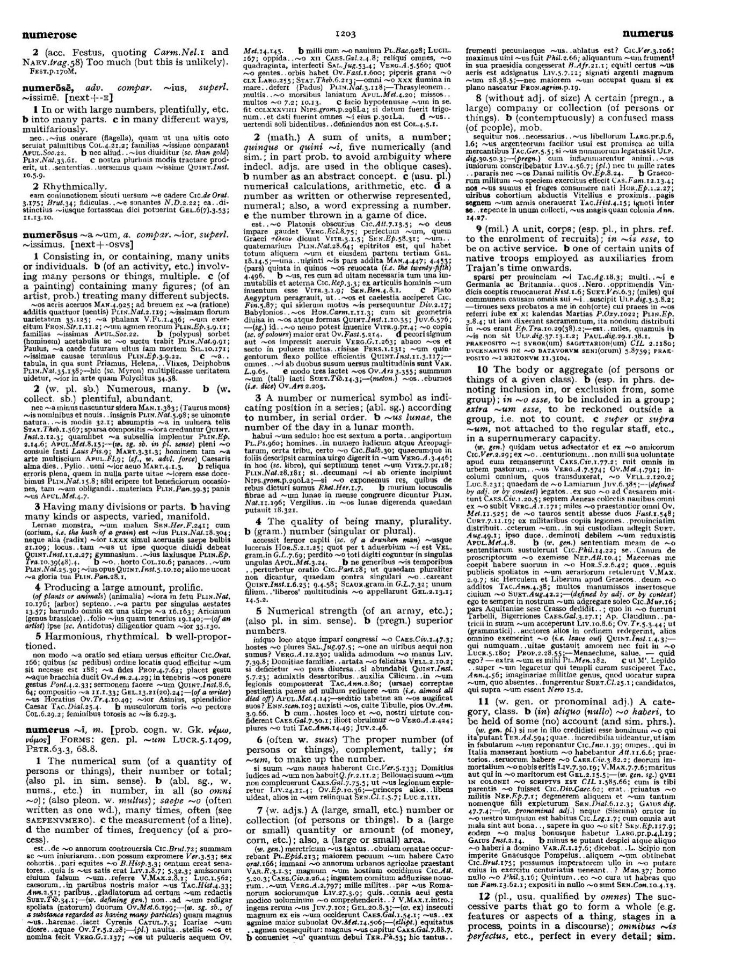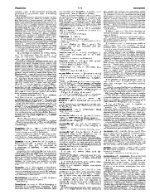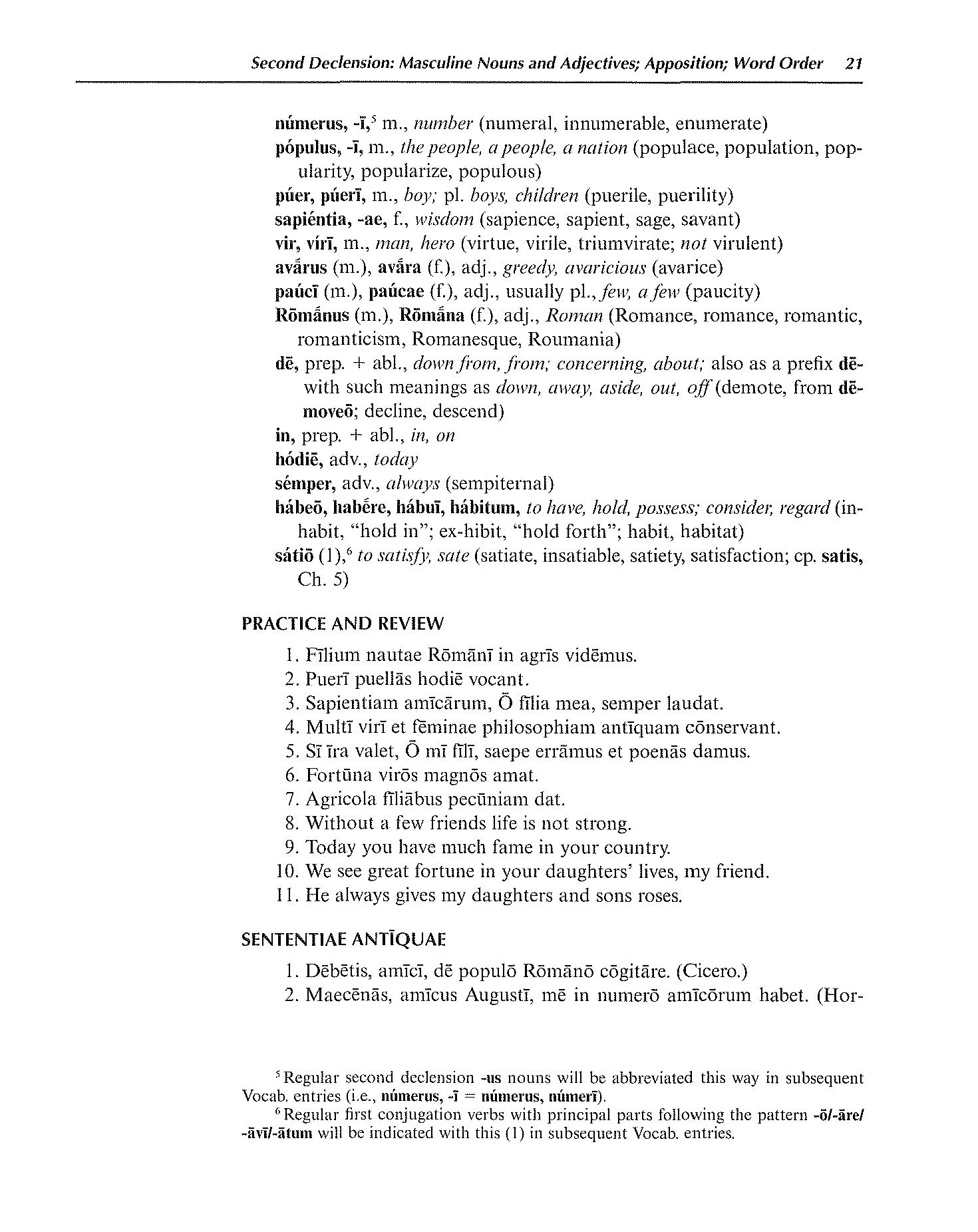
page_listing.tpl
page_subListingDetails.tpl
sub_listingDetails_style1.tpl
sub_listingDetails.title.tpl
numerus number
numerus is a Latin Noun that primarily means number.
Definitions for numerus
Wheelock's Latin
Noun
- 1
number
English derivatives:
numeral innumerable enumerate
Oxford Latin Dictionary
Noun
- 1
The numerical sum (of a quantity of persons or things), their number or total; (also pl. in sim. sense).
- 2
(math.) A sum of units, a number. (b) number as an abstract concept. (c) (usu. pl.) numerical calculations, arithmetic, etc. (d) a number as written or otherwise represented, numeral; also, a word expressing a number. (e) the number thrown in a game of dice.
- 3
A number or numerical symbol as indicating a position in a series; (abl. sg.) according to number, in serial order. (b) the number of the day in a lunar month.
Sentences with numerus
Latin to English
Mē in numerō amīcōrum tuōrum habēs.Compare You (sg.) consider me in the number (circle) of your friends.
Numerus populī Rōmānī est magnus.Compare The number of the Roman people is great.
Postquam est mortem aptus Plautus, comoedia luget, scaena est deserta, dein risus ludus iocusque et numeri innumeri omnes conlacrumarunt.Compare Since Plautus met death, comedy mourns and the stage has emptied, then laughter, frolic, wit, and countless numbers all bewailed him. [Epitaph on himself]
Roma interim crescio: duplico civis numerus.Compare Rome meantime increases: the number of citizens is doubled.
Par navis numerus Cn. Octavius, praetor prior annus, decerno.Compare They decreed an equal number of ships to Cneius Octavius, the praetor of the preceding year.
Declension table for numerus
Cactus2000
| Singular | Plural | |
| Nom. | numerus | numerī |
| Gen. | numerī | numerōrum |
| Dat. | numerō | numerīs |
| Acc. | numerum | numerōs |
| Voc. | numere | numerī |
| Abl. | numerō | numerīs |
Data sources
Notes
- Definitions
- Frederick M. Wheelock, Wheelock's Latin, 6th ed., rev. Richard A. LaFleur (New York, NY: HarperCollins Publishers, 2005): 21.
- P. G. W. Glare, Oxford Latin Dictionary, Vols. 1-8 (Oxford: Clarendon Press, 1982): 1203.
- Word frequencies
- Christopher Francese, "Latin Core Vocabulary," Dickinson College Commentaries, last modified 2014, http://dcc.dickinson.edu.
- Paul B. Diederich, The Frequency of Latin Words and Their Endings, PhD diss., (Columbia University, 1939).
- Louis Delatte, Suzanne Govaerts, Joseph Denooz, and Etienne Evrard, Dictionnaire fréquentiel et index inverse de la langue latine [Frequency Dictionary and Inverse Index of the Latin Language] (Liège, Belgium: Laboratoire d'analyse statistique des langues anciennes de l'Université de Liège [L.A.S.L.A.], 1981): 121.
Bibliography
Allen, Joseph H. Allen and Greenough's New Latin Grammar for Schools and Colleges: Founded on Comparative Grammar. Edited by James B. Greenough, George L. Kittredge, Albert A. Howard, and Benjamin L. D'Ooge. Boston, MA: Ginn & Company, 1903.
Crystal, David. A Dictionary of Linguistics and Phonetics. 6th ed. Oxford, UK: Blackwell Publishing, 2008.
Delatte, Louis, Suzanne Govaerts, Joseph Denooz, and Etienne Evrard. Dictionnaire fréquentiel et index inverse de la langue latine [Frequency Dictionary and Inverse Index of the Latin Language]. Liège, Belgium: Laboratoire d'analyse statistique des langues anciennes de l'Université de Liège (L.A.S.L.A.), 1981.
Diederich, Paul B. The Frequency of Latin Words and Their Endings. PhD diss., Columbia University, 1939.
Francese, Christopher. "Latin Core Vocabulary." Dickinson College Commentaries. Last modified 2014. http://dcc.dickinson.edu/latin-vocabulary-list.
Gildersleeve, Basil L., and Gonzales Lodge. Gildersleeve's Latin Grammar: Third Edition, Revised, and Enlarged. 3rd ed. London, England: Macmillan and Co., 1903.
Glare, Peter G.W. Oxford Latin Dictionary. Vols. 1-8. Oxford, England: Clarendon Press, 1982.
Krüger, Bernd. "Latin Conjugation Tables." Cactus2000. Accessed May 5, 2023. https://latin.cactus2000.de/index.en.php.
Pierson, Nick. "Sound of Text." Accessed October 26, 2019. https://soundoftext.com.
Wheelock, Frederick M. Wheelock's Latin. 6th ed. Revised by Richard A. LaFleur. New York, NY: HarperCollins Publishers, 2005.
Wiktionary Contributors. "Victionarium." Wikimedia Foundation, Inc. Updated March 18, 2019. https://la.wiktionary.org/wiki/Victionarium:Pagina_prima.
Citation
Chicago (17th ed.)
Allo Contributors. "numerus, numerī (n.) - Latin Word Definition." Allo Latin Dictionary. Last modified . Accessed February 19, 2026. http://ancientlanguages.org/latin/dictionary/numerus-numeri.
Entry created on . Last updated on .








